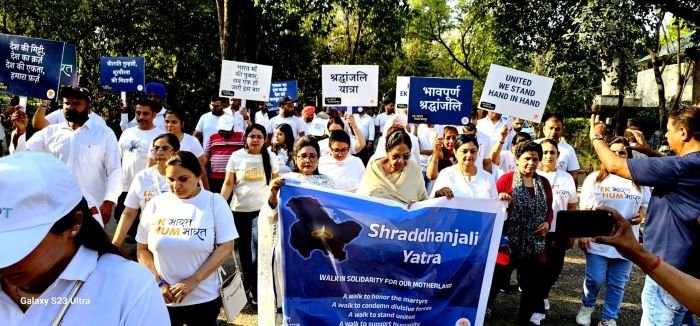
India Takes Decisive Action Against Disinformation, Blocks 16 Pakistani YouTube Channels Post-Pahalgam Attack
- Crime/MishappeningHEADLINESNATION
- April 28, 2025
- No Comment
- 28
In a decisive move to uphold information integrity and safeguard national security, the Government of India has ordered the blocking of 16 Pakistani YouTube channels accused of disseminating provocative, communally sensitive content and promoting false narratives against India, its armed forces, and security institutions. The action, recommended by the Ministry of Home Affairs, follows the tragic terror attack in Jammu and Kashmir’s Pahalgam on April 22, in which 26 civilians, predominantly tourists, lost their lives.
Officials familiar with the development stated that the decision was made after careful monitoring of digital content originating from across the border that appeared designed to inflame communal passions, mislead audiences, and undermine India’s internal stability. It underscores India’s increasingly proactive posture toward countering hybrid threats, where digital misinformation is weaponized to destabilize societies.
The blocked channels are significant players in the digital media ecosystem in Pakistan and include Dawn News, Irshad Bhatti, SAMAA TV, ARY News, BOL News, Raftar, The Pakistan Reference, Geo News, Samaa Sports, GNN, Uzair Cricket, Umar Cheema Exclusive, Asma Shirazi, Muneeb Farooq, SUNO News, and Razi Naama. These platforms were allegedly involved in circulating misleading content regarding the circumstances of the Pahalgam attack and other issues sensitive to India’s national security interests.
In parallel, the Government of India has conveyed a formal communication to the British Broadcasting Corporation (BBC), expressing concern over its terminology in describing the perpetrators of the Pahalgam incident as “militants” rather than “terrorists.” Indian officials emphasized the need for responsible language, particularly from globally influential media outlets, to ensure accurate representation of acts of terrorism and to avoid any inadvertent legitimization of violent extremism.
The development reflects a broader shift in India’s national security architecture, where information security is increasingly being integrated into the overall defense paradigm. By taking firm action against cross-border disinformation, India seeks not only to deter future attempts at destabilization but also to send a clear diplomatic signal that the sovereignty of its information space is non-negotiable.
International observers have noted that the proliferation of misinformation and disinformation campaigns poses a growing threat to democratic societies worldwide. India’s response is seen as aligned with the global trend of governments seeking to safeguard the digital realm against malign influence operations, especially in the aftermath of violent extremist incidents.
As hybrid warfare becomes an increasingly prominent feature of contemporary conflict, India’s efforts to protect its digital environment, strengthen public trust, and maintain communal harmony are likely to set important precedents for other nations confronting similar challenges. The blocked Pakistani channels, many with significant subscriber bases, had the potential to distort public discourse at a vulnerable moment for India, prompting swift and necessary action.
New Delhi remains committed to preserving the integrity of its information domain and expects international cooperation in confronting the evolving threat posed by disinformation and extremist propaganda.
#India #PahalgamAttack #YouTubeChannels #InformationSecurity #CounterTerrorism #GlobalSecurity #DigitalIntegrity
This is an auto web-generated news web story.



